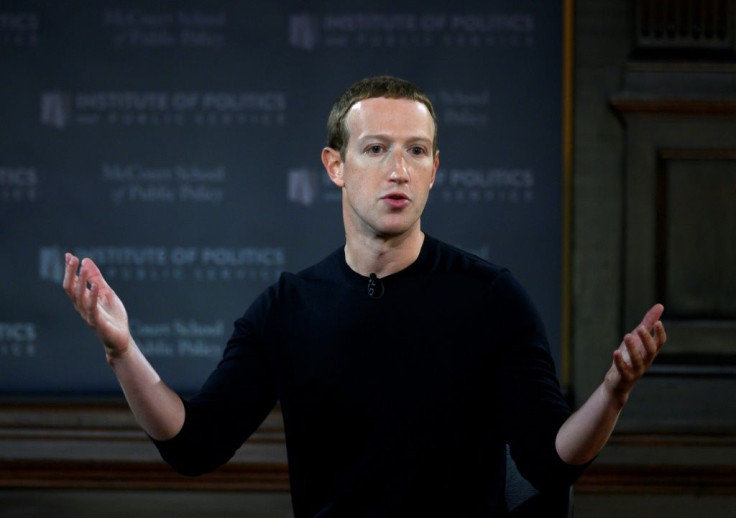Despite New Security Features, Facebook Fails To Tackle Misinformation Spread Through Ads

Facebook had on Monday announced beefed up security measures to ensure that it won't be used as a tool to interfere in the upcoming 2020 presidential elections. However, in the glitz and glamour of the new features and the crackdown on suspicious accounts, they clearly missed out on one important point: Curbing the disinformation spread through ads run by political candidates.
While Facebook tried to guarantee that it is doing everything in its power to tackle fake news and disinformation, their defiance to tackle the same being spread through ads of political candidates and their campaigns have not been seen as a welcome move by many.
Senator Elizabeth Warren, among many others, had criticized Facebook for not involving third-party fact-checking for information that is being claimed or propagated through the ads. Critics have argued that failure to screen the ads for false information will eventually prove to be misleading, hurtful, and even damaging to the outcome of the 2020 elections.
While discussing the newly launched security features with the press over a call, Facebook CEO Mark Zuckerberg was pushed to answer as to why the much-derided policy of Facebook ads was not changed. He replied saying that it was up to the people to decide which candidates and the information and the stats that they flaunt are credible.
“People should make up their own minds about what candidates are credible. I don’t think those determinations should come from tech companies . . . People need to be able to see this content for themselves,” Zuckerberg said.
He emphasized that the current measures, combined, would help work towards a much transparent presidential election in 2020.
“The bottom line here is that elections have changed significantly since 2016. We’ve gone from being on our back foot to proactively going after some of the biggest threats out there,” Zuckerberg told the press in the call.
Zuckerberg had chosen the narrative of giving people a voice rather than stifling it to defend their ad policy in a speech last week.
"While I certainly worry about an erosion of truth, I don’t think most people want to live in a world where you can only post things that tech companies judged to be 100 percent true. Banning political ads favors incumbents and whoever the media chooses to cover,” he said.
Earlier this month, Warren's campaign ran an ad on Facebook purposely giving out false information and it did not get flagged, which made her target Facebook and Zuckerberg.
Facebook identified and removed four separate networks of accounts that indulged in coordinated inauthentic behavior on both Facebook and Instagram on Monday. These networks originated in Iran and Russia and targeted users in the U.S., Latin America, and North Africa.
Thoughtful analysis by @benimmo and @Graphika_NYC https://t.co/IFeSyQ1YHp
— Nathaniel Gleicher (@ngleicher) October 21, 2019
135 accounts, multiple pages and groups, and 21 Instagram accounts that belonged to three separate networks from Iran and 50 Instagram accounts and one facebook account that belonged to a network originated in Russia, with links to the Internet Research Agency (IRA) were removed.
“The people behind this operation often posted on both sides of political issues including topics like US elections, environmental issues, racial tensions, LGBTQ issues, political candidates, confederate ideas, conservatism and liberalism. They also maintained accounts presenting themselves as local in some swing states, and posed as either conservatives or progressives,” Facebook said.
“We took down these networks based on their behavior, not the content they posted,” Facebook said in their release. “In each case, the people behind this activity coordinated with one another and used fake accounts to misrepresent themselves, and that was the basis for our action.”
In addition to the crackdowns, they also released a slew of security measures to ensure better transparency and curb fake news related to the upcoming 2020 presidential elections.
Features, like labeling false news more prominently and introducing a spend tracker for U.S. presidential candidates, have been announced. The company is also set to launch ‘Facebook Protect’, a tool to ensure that the accounts of elected officials, candidates, and their staff are not vulnerable to breaches and hacks from adversaries.
We’ll also more prominently label content across Facebook and Instagram that has been rated false by third-party fact checkers pic.twitter.com/Aqbo0JHjA8
— Meta (@Meta) October 21, 2019
We’re updating the Ad Library.
— Meta (@Meta) October 21, 2019
A new U.S. presidential candidate spend tracker will share ad details across national, state and regional levels. We’ll also make it clear if an ad ran on Facebook, Instagram, Messenger, or the Audience Network pic.twitter.com/1pPQJKSC7t
While the security measures look promising and are a step in the right direction, the failure to address the ads from political candidates and campaigns leave Zuckerberg's idea of an unbiased platform to look hollow and unrealistic.
Politico published a report last week saying Zuckerberg met with conservative journalists, commentators and at least one Republican lawmaker in recent months to talk about partnerships and free speech.
© Copyright IBTimes 2024. All rights reserved.





















